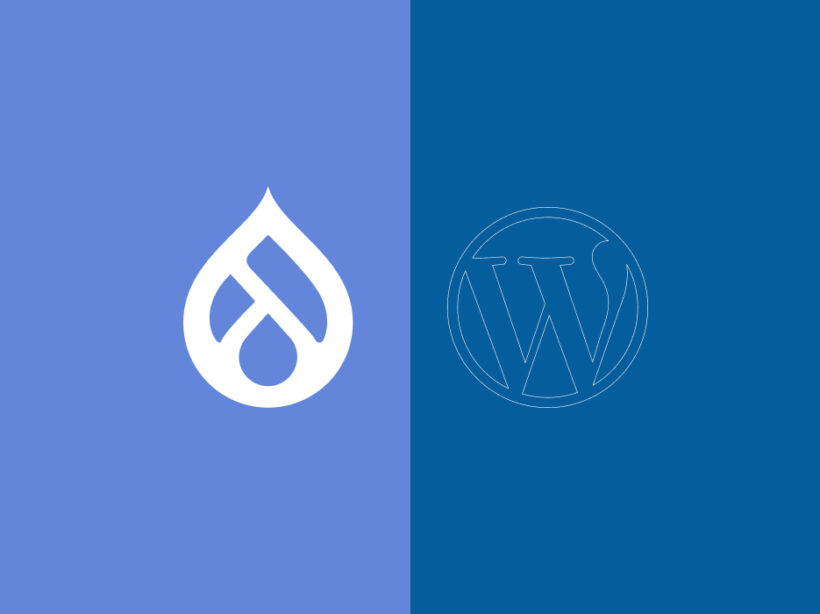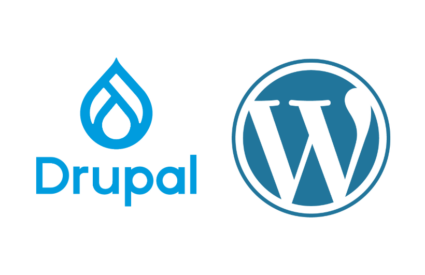This was the first thing that comes to mind whenever I’m asked “how do we migrate from Drupal 7 to WordPress”. It seems like an impossible task, like trying to calculate pi to the last digit.
Apples, Oranges, and Pi, oh my
Where Drupal has modules, WordPress has plugins. Where Drupal has nodes, WordPress has posts and pages. Drupal uses blocks, WordPress uses widgets.
Functionally these pieces all accomplish the same tasks, but technically they’re built differently. It means there isn’t a one click solution that will take all your Drupal content and smash it into a WordPress CMS, like replacing the center of an orange with an apple. It just doesn’t work like that.
Ultimately it comes down to this: a Drupal 7 database and a WordPress database are just too different. Their tables have different structures and names and they just don’t understand each other. And with any amount of customization possible on both sides of the equation, computers, or one click plugin scripts, just can’t make the leap.
A Developer Can Migrate D7 to WordPress
That’s right, where a computer fails, a human can succeed. Because the best way to migrate your content from D7 to WordPress is to execute a script (an automated process) that has been designed by a person who has some basic familiarity with the content in question. A developer can compare the different sets of data, determine where it should go, and create a script that tells a computer where to put what. They can also set up the receiving database with tables and columns that match any customizations needed.
Piece by piece, developers can identify the needed tables from your Drupal 7 database and how to migrate them into a WordPress database. It’s not a fast process, but it’s a careful and deliberate one, meant to preserve essential content and data.
Content Migration, Check. What about style and function?
Even though we’ve got your core content, there’s no way to mash a Drupal 7 module or block in a WordPress plugin or widget. Those will need to be built again, using your existing site as a template for the outcome. A developer can absolutely make your site do the same things, but they will need to use a different set of tools. The good news is being able to see the existing function on your website will help them execute the same effect with clarity.
Themes and styles are a mixed bag. They don’t directly transfer, but often chunks of code can be reused, provided it’s clean, documented, and follows best practices. In some cases, it may be easier for a developer to start from scratch and merely mimic the existing theme instead of borrowing from it. Regardless, your site will still look the same at the end of the day whether it’s on Drupal 7 or WordPress.
This sounds complicated!
It is! It really is. But that’s the reason you hire an agency like Kanopi to do the hard stuff for you. Our team is experienced in both Drupal and WordPress, giving us a wide range of internal resources to rely on as we approach your project. We can also help you with choosing your hosting platform; not all hosts are created equal and some are CMS specific, like Acquia for Drupal or WP Engine for WordPress.
That said, there are things you can do in advance of your migration to make the process smoother and reduce the overall time and cost.
Curate Your Content
Go through your website, top to bottom. Are there pages that are no longer relevant? Are you keeping an archive of your blog posts back to 2001 even though your analytics show no user activity that far back? It’s time to hunker down and start cutting out the content you don’t need. Or at the very least, create an accurate list of what you do not need your developer to migrate. Cleaning up your content means there’s less to move, and what is needed is easier to consolidate.
Consolidate
Now that you’ve checked through your site, are there areas that are too similar? Do you have a support page and a content page but the only difference is the url and the title? It’s time to trim away duplicate and redundant content. Redirects can handle your url changes, and your users will appreciate a more streamlined approach to using your site.
Update Your Site / Modules
If your site is out of date, it’s a security risk, plain and simple. And out of date modules can perform in unexpected ways; you don’t want incorrect functionality being copied to your new site. Getting everything up to date and verified will ensure there’s no confusion about what’s expected.
Remove Unwanted Sections / Functions / Content
Does your site have unpublished nodes? Are you saving them for something important? If not, it’s time to purge. Clean out that unused content. Got functions you’re not really fond of? Remove that too. Styles you don’t like? DELETE. Get rid of anything you don’t want; there’s no point in paying to have it moved to WordPress.
Clean Up Your Code
Sloppy themes and templates are bad for a lot of reasons, but specifically it’s not something you want to migrate to your new WordPress site. Cutting corners and using messy code will only cause problems later on. Getting your theme files documented at the very least will make a big difference when it’s time to rebuild them. Not to mention, Drupal and WordPress coding standards are going to differ, there’s some work that could be done ahead of time to ease the transition.
Compute to the last digit, the value of Pi
Unlike computing pi, going from D7 to WordPress is actually possible, even if it’s not easy. And that’s why Kanopi is the agency you want to partner with. We want to work with your site before it’s time to migrate. Our team will get to know your website (the good and the bad) through ongoing Drupal 7 support. We can help you with the content, the consolidation, the updates, and the code in advance of moving to WordPress. And when it’s time to start the nitty gritty migration, we’ll be ahead of the game with far much more than a basic understanding of your site; your needs and goals will already be a part of our roadmap.








